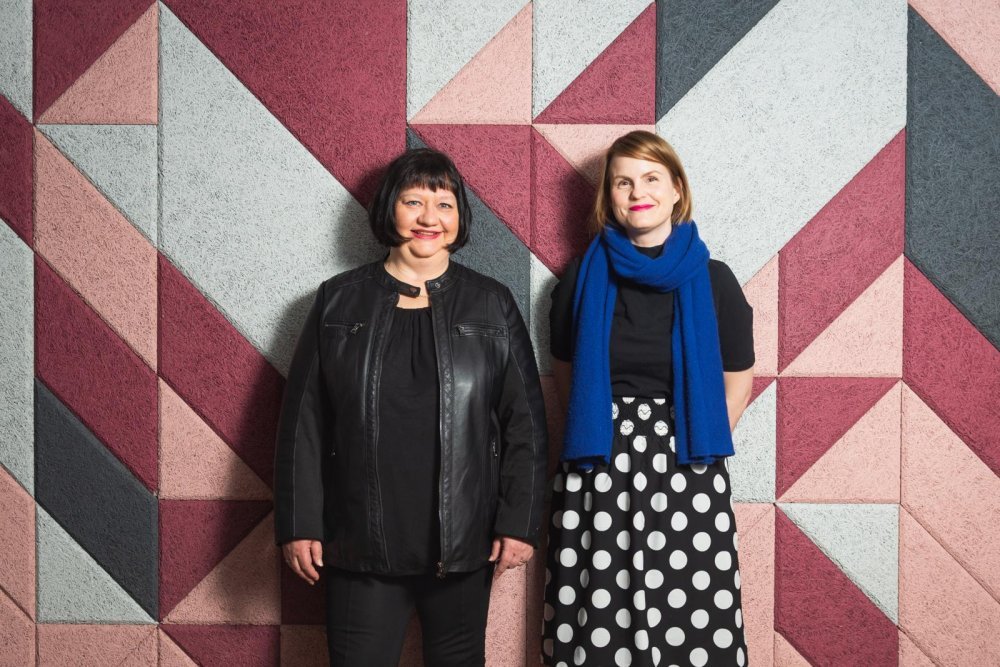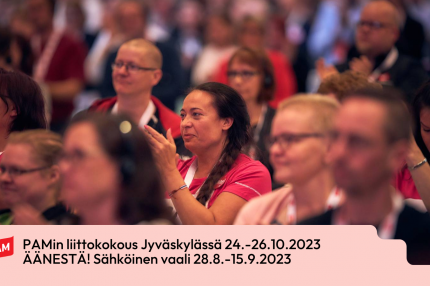EU
European cooperation boosted employee safety at Sodexo
According to Sodexo's Chief Shop Steward Sirpa Aly and HR Manager Riikka Lindholm EWC work is of importance. Photo: Emilia Kangasluoma
At Sodexo, a suggestion from its European Works Council to monitor and analyse occupational accidents has become a permanent policy.
European Works Councils (EWC) are groups in multinational companies where representatives selected by employees can discuss the company’s issues together with the leadership. Sodexo Oy, a part of the international Sodexo Group, was among the first companies in the Finnish service industry to establish a European Works Council.
Thanks to the EWC, Sodexo has been able to improve its level of occupational safety while developing its work uniforms to better correspond to the specific environments in each country where the group operates.
“At first we collected information on our employees from different countries. We noticed that certain countries had significantly higher numbers of accidents at work, and we found this tremendously interesting,” explains Sirpa Aly, a long-term EWC representative at Sodexo.
To analyse these occupational accidents in more detail and to enable comparisons between different countries, the EWC group used a software called Salus, which enabled them to collect information about accidents in all European countries: how many accidents occur, where, and what their causes are.
Countries with many accidents were put under special examination. The causes of the accidents were analysed and remedied.
“For example, Finland has seen a significant reduction in the previously high number of accidents involving knife cuts after we started using cut-proof gloves,” Aly explains.
Today, monitoring occupational accidents is one of the company’s basic policies and part of its accident prevention system. Aly mentions consulting employees in developing the work uniforms as another significant accomplishment of the work of the EWC.
“We received employee feedback on how the work uniforms should be developed to better correspond to the conditions in each country and to the needs of the employees. We discussed this with corporate leadership, after which we organised a meeting with the uniform suppliers. This development work needs to be continuous.”
Confidentiality and appreciation for the work of others are key
Sirpa Aly, regional chief shop steward at Sodexo and EWC representative, joined the EWC more than 20 years ago. She participated in negotiating an EWC agreement for Sodexo group. This was needed to create the framework for the Council. Aly knew little about European Works Councils beforehand, and at the time, there was nobody around to help her along, as she was creating something entirely new. However, she was pushed forward by her curiosity, determination and desire to seek out new challenges.
“Being in a European Works Council is extremely interesting and long-term work. At first, I thought I was coming to Sodexo temporarily, to work as a chef. However, seeing this company grow from a small family-run business into an international listed company has been so interesting that I’ve gotten quite caught up in it,” she laughs.
Now, more than 20 years later, Aly is still excited about the opportunities to improve employment conditions which international cooperation can provide.
At the moment, Sodexo has close to 30 EWC representatives, of which three form the core committee protecting the interests of employees. Aly is a member of this committee, and the only woman in the group.
“During the year, the committee discusses the observations, questions and suggestions that are brought up by the employees. We meet once a year with corporate leadership in an EWC meeting, in which we discuss occupational safety, finances and the company’s future,” Aly explains.
She says that confidentiality and the respect for the work of others are they key to working in an EWC. The committee may also encounter unforeseeable issues.
“For example, if the company’s operations are to be reorganised, the committee will be the first to know. There may also be information which must be kept confidential for a specific time. We receive a great deal of information on trust,” she explains.
Long-term results
According to Aly, the main qualities needed for an EWC operative are patience, bravery, language skills and initiative. It is also important to be aware of cultural differences between countries and to understand different ways of doing things.
“This is slow, systematic work, the results of which are only visible on a longer time span. For this reason it would be ideal if the EWC representatives would not change constantly,” Aly muses.
While international cooperation comes with its own challenges, Aly finds it a significant tool for improving worker conditions.
“If you’re working in a multinational company and want to be involved in employee issues, do join an EWC!” she suggests.
Apply for an EWC course!
You can apply for a course on EWC activities latest by 23 July through PAM's course calendar.





